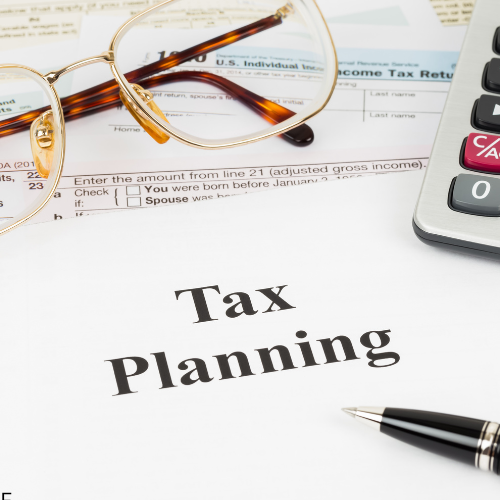Tax planning is an important aspect of financial management that focuses on optimizing your tax status in order to save money and accomplish your financial objectives. You may make better financial decisions by employing tax-efficient tactics, managing capital gains, and collaborating with tax specialists.

Tax-Efficient Strategies
Effective tax-efficient strategies include using tools and techniques to reduce your taxable income. This includes making contributions to tax-advantaged accounts like 401(k), IRAs, and Health Savings Accounts (HSAs). Furthermore, taking advantage of deductions, credits, and exemptions can reduce your overall tax obligation, leaving more money in your pocket.
Capital Gains Management of Tax Planning
For anybody with assets, capital gains management is essential. You can reduce the amount of taxes due on gains by carefully planning when to sell assets like stocks or real estate. Holding assets over longer periods is advantageous since long-term capital gains are usually taxed at a lower rate than short-term gains. Another useful strategy to lessen your tax burden is loss harvesting, in which losses balance profits.
Collaboration with Tax Professionals
Your tax preparation will be precise and thorough if you work with seasoned tax experts. These tax professionals assist you in navigating complicated tax rules, finding areas where you can save money, and getting ready for future adjustments to tax laws. Working together with tax consultants also lowers the possibility of mistakes, giving you peace of mind throughout tax season.
Benefits of Tax Planning
-
- Increased savings: Keep more of your income through efficient strategies.
-
-
- Proactive management: Avoid surprises by planning ahead for tax obligations.
-
- Investment growth: Minimize taxes on investment returns for better growth potential.
-
- Expert guidance: Leverage professional advice for smarter tax decisions.
Conclusion
Tax planning is essential for financial success, offering tools and techniques to minimize liabilities and maximize savings. By focusing on tax-efficient strategies, capital gains management, and working closely with tax professionals, you can take control of your financial future while staying compliant with tax regulations.
